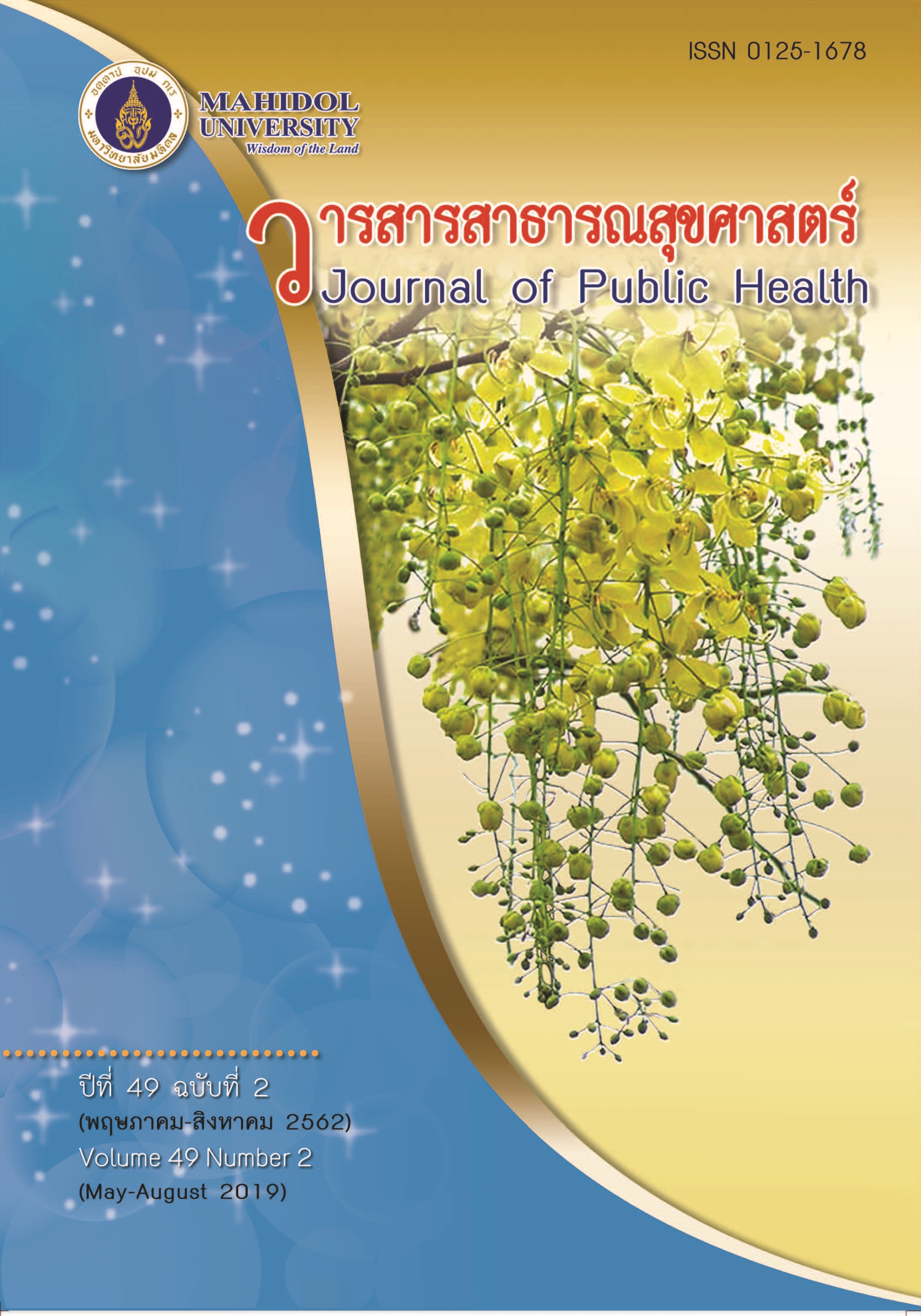Development and Validation of Health Psychological Capital Scale for a Thai Population
Keywords:
Health Psychological Capital, Scale Development, Psychometric Properties, health psychological capital, scale development, psychometric properties, Thai populationAbstract
The purposes of this research were to develop and test psychometric properties of the Health Psychological Capital Scale, or simply Health PsyCap, for a Thai population. The scale items were constructed based on literature review and findings of focus group discussions with six registered nurses. Content validity of the items was then assessed by three experts. Totally, 642 young adults living in the Bangkok Metropolitan Area participated in the study: 126 in the tryout phase and 516 in the psychometric property testing phase. Reliability was assessed employing the split half method of the measurement of health efficacy, health optimism, health hope, health resilience and overall Health PsyCap were 0.889, 0.874, 0.861, 0.828, and 0.946, respectively. The alpha-Cronbach coefficients of the measurement of health efficacy, health optimism, health hope, health resilience and overall Health PsyCap were 0.846, 0.850, 0.825, 0.794, and 0.922 respectively. The positive significant correlation between the scores of all components of Health PsyCap, overall Health PsyCap and the score of psychological well-being revealed evidence of criterion-related validity of the Health PsyCap Scale. The fit of measurement model to the empirical data revealed evidence of construct validity of the Health PsyCap Scale (X2= 294.238, df = 270, p =0.149, GFI = 0.961, RMSEA = 0.013). Results showed the reliability and validity of the Health PsyCap Scale. However, when this scale was used with different age groups, measurement invariance should be tested to demonstrate the appropriate use of this scale.
Downloads
Published
Issue
Section
License
Creative Commons License CC-BY-ND


